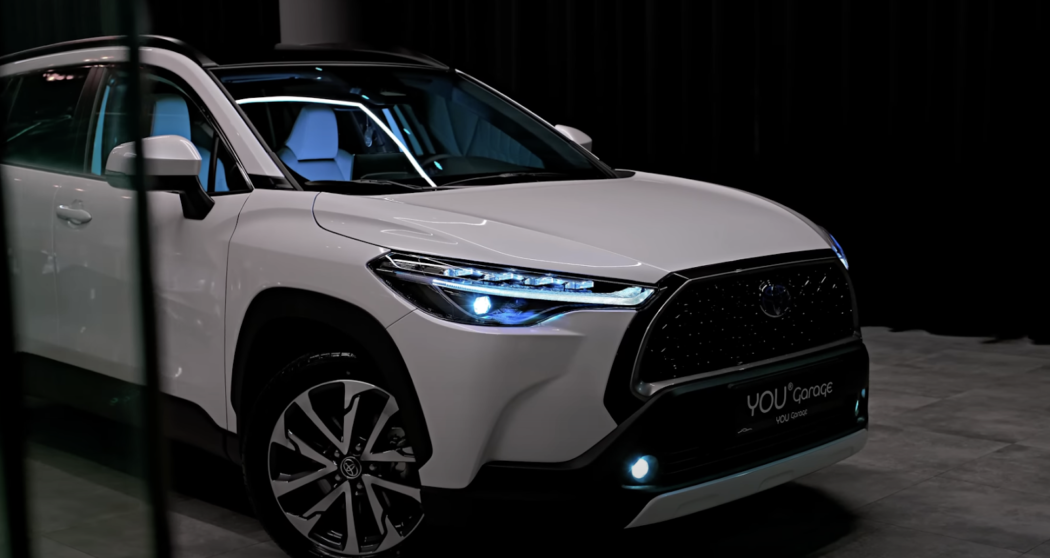Toyota – a brand synonymous with reliability, fuel efficiency, durability and attractiveness – has experienced an unprecedented surge in popularity over the past twenty years. This surge can be attributed to its exceptional resale value and reputation as a consistently reliable brand. However, the cost of buying new or used Toyot vehicles has increased markedly.
In this article, we will examine the reasons for the rise in Toyota car prices, while maintaining the original structure and headings.
1. Unparalleled Reliability
Toyota has established itself as a manufacturer of exceptionally reliable vehicles, and this is a recognized fact:
- That unrivaled reliability has allowed the Japanese automaker to consistently raise prices over the past decade. The Japanese automaker’s reputation as a manufacturer of electronics, suspension, and other vehicle components that are second to none is ensured by the lack of obvious flaws in their vehicles;
- The principle that greater reliability requires a higher price is well known. Prioritizing simplicity in the design of the engine and other components greatly increases the reliability of Toyota vehicles;
- Competitors, by contrast, often have complex components such as turbochargers that increase the risk of unforeseen malfunctions.
Toyota vehicles may become even more expensive over time. However, if their reliability remains at the same level, consumer demand is likely to continue.
2. Industry-Leading Reputation
Brand reputation is a powerful factor influencing global sales. Toyota’s global standing is based on reliability and value propositions. This impeccable reputation allows the brand to justify higher prices:
Despite the gradual increase in the prices of Toyota vehicles over the past decade, the company has managed to maintain its association with high-priced cars.
Toyota’s unwavering commitment to quality and functionality, which some might call conservative, has contributed to the company’s enduring reputation. Combining attractive qualities and a proven track record as a solid investment.
3. Versatility and Practicality
The variety of Toyota vehicle models attracts the attention of individuals and businesses alike. Their pickup truck models, renowned for their reliability and adaptability, have found significant use as work vehicles. The inherent versatility of Toyota pickup trucks with features for personal and commercial use has catalyzed the global demand.
Moreover, the popularity of pickup trucks is increasing owing to their ability to withstand external damages while maintaining the comfort and performance of the interior. The widespread adoption of Toyota vehicles among consumers and businesses is constantly driving demand, putting upward pressure on prices.
4. Exceptional Off-Road Capabilities

Modern Toyota vehicles boast a mastery of overcoming severe off-road terrain that is as good as their performance on paved roads. This ability to overcome the most difficult trails without sacrificing the luxury of the interior has determined their high price.
Today’s Toyota models are equipped with an array of essential off-road features such as automatic differentials, increased ground clearance and advanced suspension systems. The growing interest in SUVs and off-road travel is increasing the demand for them, given Toyota’s established reputation as a reliable manufacturer with off-road capabilities and comfortable interiors. The brand image in the context of adventure and exploration also justifies their premium price.
5. Limited Availability
Consistently among the world’s best-selling automobile companies, Toyota experiences a unique dynamic due to the fact that car owners tend to keep cars for long periods of time. This practice leads to limited global inventories. Competitors often maintain large inventories, which has a dampening effect on demand and thus prices.
In contrast, Toyota’s deliberately limited inventories increase consumer and commercial demand, contributing to higher prices. The scarcity of Toyota vehicles in the market keeps resale values high, incentivizing potential buyers despite high initial costs.
6. Minimal Maintenance Expenses
Toyota vehicles have the lowest maintenance and repair costs among global automakers. This is due to the brand’s commitment to simplicity of design and overall reliability, resulting in lower annual maintenance costs. While low maintenance costs are a boon to any car owner, they inevitably result in a higher initial purchase price.
Since Toyota car owners are spared from significant annual maintenance costs, they are forced to compromise on higher initial costs. The brand’s reputation for economic sustainability of car ownership strengthens its position, allowing it to charge premium prices.
7. Substantial Investment in Innovation
Toyota’s legacy of reliability, versatility and functionality has been continuously invested in research and development over the past two decades. The company has invested significant capital in its own research and development, resulting in some of the most technologically advanced vehicles in the world. This includes sophisticated suspension systems, state-of-the-art interiors, and the highest levels of off-road capability. The initial research and development costs are being recouped through continual price increases.
While some Toyota critics may argue that today’s models are overly complex and expensive, the brand maintains a balance between price and the value proposition offered by its vehicles. In addition, Toyota’s significant marketing efforts have improved annual sales figures, albeit at the expense of increasing the cost of cars for average consumers.
Conclusions
In conclusion, the rising prices of Toyota vehicles are attributed to a combination of factors such as unrivaled reliability, industry-leading reputation, versatility, exceptional off-road capabilities, limited availability, minimal maintenance costs, and significant investment in research and development. While this raises issues related to vehicle affordability, Toyota’s enduring popularity and the brand’s commitment to offering great deals continues to drive demand for vehicles, regardless of cost.
In the ever-changing landscape of the automotive industry, Toyota stands out as a brand that masterfully combines reliability, innovation and versatility to create vehicles that win the hearts of consumers around the world. By examining the seven reasons behind the high prices of Toyota vehicles, a comprehensive understanding of how the brand has positioned itself as the premium choice in the market.
From the solid foundation of unrivaled reliability to the industry-leading reputation that Toyota has carefully built over the years, the brand’s commitment to excellence is evident. Toyota vehicles have evolved from a simple means of transportation to a trusted companion for work and play, adapting to different needs without compromising on quality.
Impressions of the brand’s off-road capabilities and scarcity due to limited demand reinforce the aura of exclusivity surrounding Toyota vehicles. In addition, the emphasis on minimizing the long-term costs of car ownership through low operating costs reinforces the brand’s appeal as an economical choice for consumers.
Toyota’s continuous investment in research and development has led to the emergence of cutting-edge technologies. Their arrival in the market may be perplexing, but they ultimately pay for themselves through improved driving performance, safety, and overall value.
While some critics may argue that Toyota vehicles are becoming increasingly complex and expensive, it’s important to recognize that the brand maintains a delicate balance between pushing technological boundaries and producing vehicles that still provide value for money.
In essence, the story of why Toyota cars have a high price tag is a story of engineering excellence, innovative spirit and a deep understanding of what the modern consumer needs. Toyota’s commitment to keeping up with the times while maintaining its reputation for reliability has cemented its position as a leading automaker. It is safe to say that as the automotive industry continues to evolve, Toyota’s legacy will remain intact, paving the way for a future where its vehicles will remain a symbol of quality, reliability and durability.











